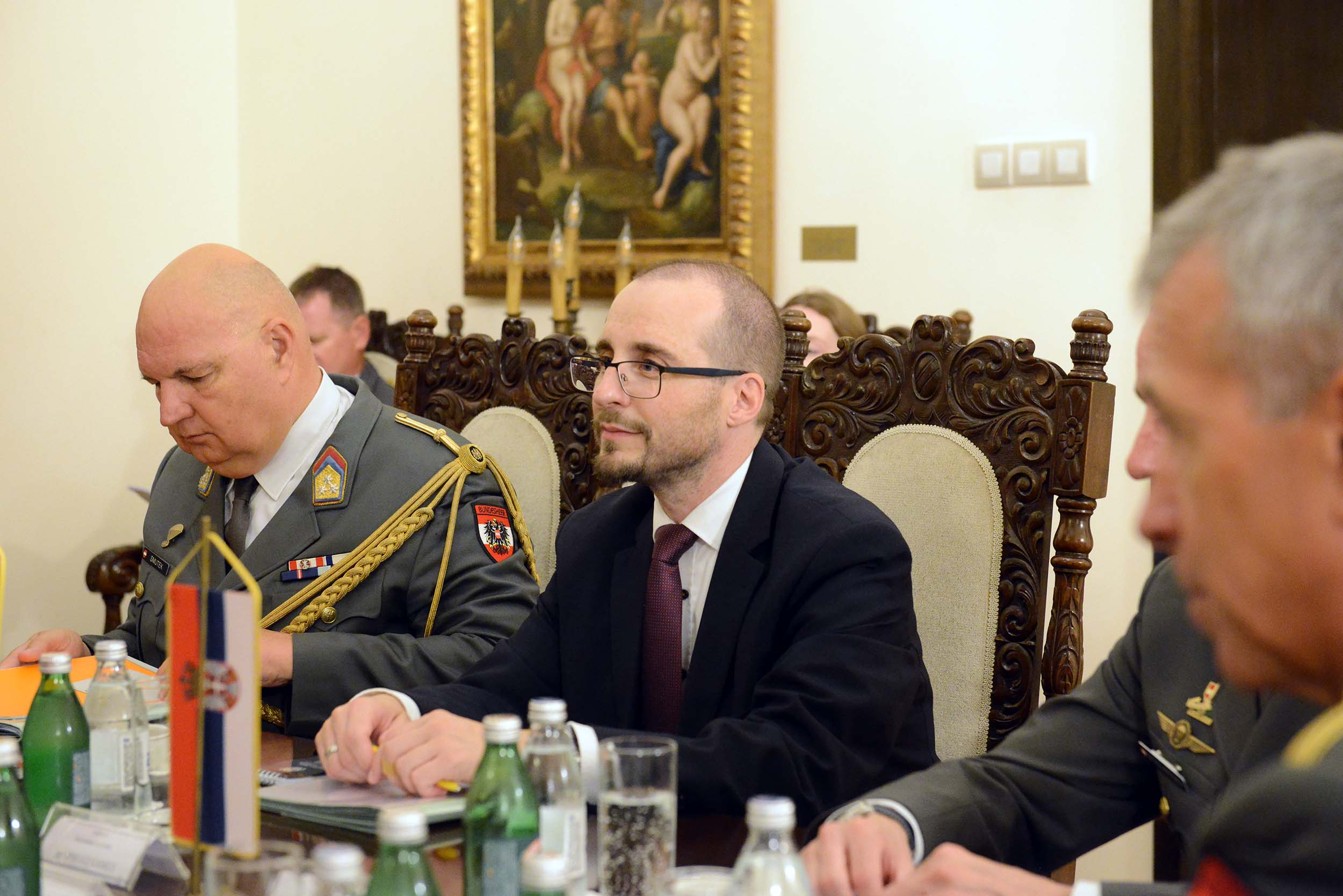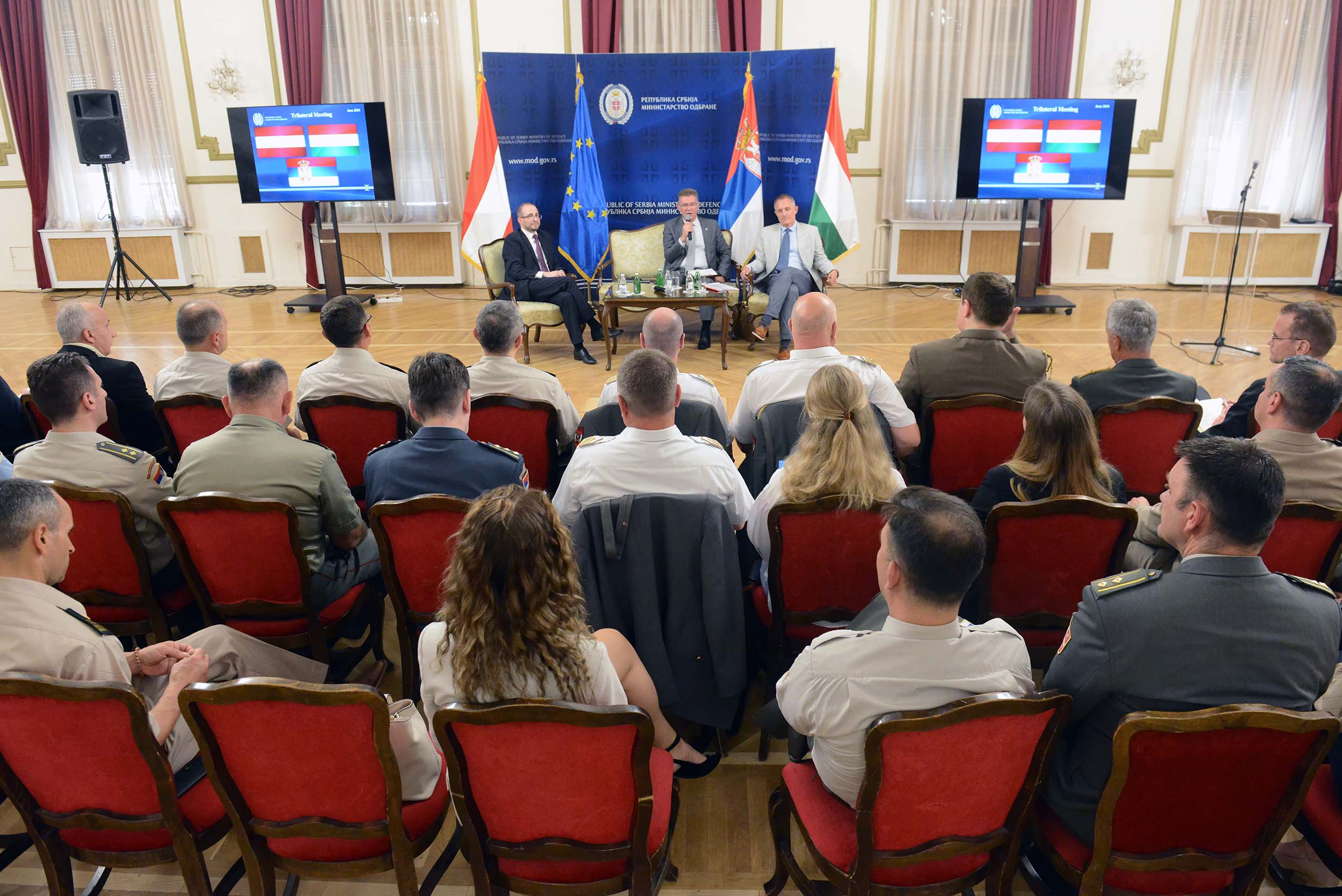21.06.2024.
Separate Bilateral Defence Consultations Held with Austria and Hungary
Today, a delegation of the Ministry of Defence of the Republic of Serbia, led by Acting Assistant Minister for Defence Policy Predrag Bandić, had separate defence consultations with representatives of the Federal Ministry of Defence of the Republic of Austria and the Ministry of Defence of Hungary.

The Austrian delegation was headed by Secretary-General and Director of Directorate for Security Policy Arnold Kammel, PhD, while the Hungarian delegation was led by State Secretary for Defence Policy László Hajnik.

During the talks with the Austrian delegation, both sides expressed their readiness to further advance the defence cooperation. They exchanged views on security situation in the region and stressed the importance of Graz/Krems format, as a prospective platform for the cooperation between ministries of defence and armed forces of the region that promotes positive dialogue as a primary mechanism to overcome difference in positions and perception of security risks.
At the meeting with the Hungarian delegation, the interlocutors stated that the defence cooperation was on a continuous upswing keeping up with the overall relations between the two countries. Both sides agreed that the cooperation between Serbia and Hungary was extremely important for the preservation of peace and stability in the region in highly challenging times for both European and global security.

After the completion of the consultations, a joint panel took place titled “European Union at the crossroads - expansion of borders or withdrawal as a response to security challenges”. On that occasion, Acting Assistant Minister Bandić, Kammel and Hajnik presented their views from the perspectives of their countries on post-election period in the European Union and priorities during Hungarian chairmanship of the European Union and Central European Defence Cooperation.
They also discussed the security situation in the Western Balkan Region, the positioning of militarily neutral countries regarding current challenges and risks, and the current state and future of common security and defence policy of the European Union.

The said panel gathered representatives of the Sector for Defence Policy of the Ministry of Defence, Strategic Research Institute and National Defence School of the University of Defence, as well as representatives of the Institute for International Policy and Economy and Institute for European Studies.



